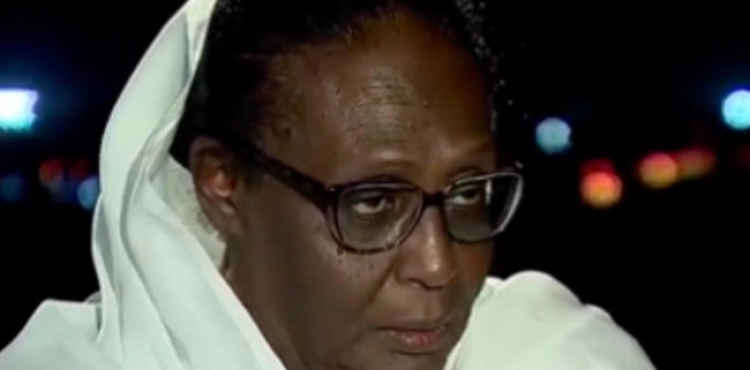Sophisticated diplomacy has become the first woman to take over the foreign ministry in Sudan´s history, which is undergoing a transition to civilian rule after decades of authoritarian rule.
Abdullah, 73, was sworn in as foreign minister on Sunday in the first civilian government after Bashir was ousted in April.
Bashir came to power in 1989 after a military coup backed by Islamists.
Wearing a traditional white dress and wearing glasses, Abdullah took part in the swearing-in of the 18-member cabinet at the presidential palace in Khartoum, in the presence of members of the civilian military council led by Lieutenant General Abdel Fattah El Burhan.
The sovereign council is charged with overseeing the historic 39-month transition and paving the country for civilian rule, the main demand of protesters.
Abdullah, who studied for a while in the United States, was one of the first three women to join the Sudanese diplomatic corps after graduating from the University of Khartoum in 1971 with a degree in economics and political science.
But it was fired in 1991 by the Bashir administration, which seized power in a military coup two years earlier.
Abdullah´s appointment comes as part of Prime Minister Abdullah Hamdouk´s plan to form a technocratic government and to strike a gender balance between men and women.
Hamdouk himself is a seasoned economist who worked in international and regional organizations and served as Deputy Executive Secretary of the United Nations Economic Commission for Africa in Addis Ababa.
"By appointing women ministers like Asma Abdullah, Sudan presents a positive image to the world," a European diplomat, who asked not to be named, told AFP.
"Sudan is changing ... and is no longer a pariah state as it was during the Bashir era."
Years of US sanctions on Sudan have isolated Sudan from the international community.
Washington lifted the sanctions in 1997 in October 2017 but kept Sudan on the list of state sponsors of terrorism, keeping foreign investors away.
Experts said the prime minister´s priority would be to negotiate with Washington to remove Khartoum from the list of state sponsors of terrorism.
Abdullah´s other major foreign file will be relations with Cairo, which has been marred by differences over time because of border, trade and political disputes.
However, Cairo was a staunch ally of the junta, which seized power after the army overthrew Bashir in April.
On Monday, Abdullah met with her Egyptian counterpart Sameh Shoukry, who is visiting Khartoum on a visit that Cairo considered "establishing a new phase of cooperation between the two countries."
Abdullah has held several diplomatic posts in Sudanese foreign missions, including the United Nations, Stockholm and Rabat.
After her dismissal, Abdullah worked in regional organizations including the Arab League. In 2009, it established a translation service office.
Abdullah, whose husband also worked for the United Nations, has one daughter.












